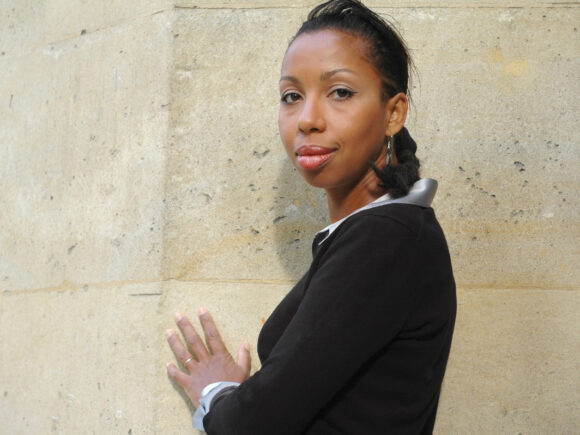What is your greatest fear?
Forgetting. This is why I started journaling when I was six, and never stopped. As a kid, I was convinced that if I could only put those moments on paper, then time would stop or I’d be able to save those memories. A few years later, I must have been 12 or 13, I stumbled upon one of these entries—it read like the life of a stranger. That’s when I decided I might as well start writing fiction.What is your current state of mind?
Saddened and enraged by the state of the world but convinced that art and books have the power to strengthen empathy and broaden our horizons.On what occasion do you lie?
When I write fiction? Even if in that case, it’s an attempt to tell the truth. In real life, I’m a very bad liar.Which talent would you most like to have?
Time traveling. I’m aware it’s more a superpower than a talent, but I’m hoping Marcel Proust’s ghost, out of everyone, will understand and forgive me.What do you consider your greatest achievement?
Sticking to writing, hanging onto a story for years, without knowing whether it’ll ever see the light of day. I lived with the characters of my fourth novel for almost a decade, met them first when I was 22 and watched them being released into the world shortly before I turned 30.For most of that time—as I conducted research in the U.S. and in France, as I worked on the manuscripts in English and in French—I wasn’t sure if this book would ever be published, if an editor would be interested in the forgotten story of these French women sent to Louisiana as wombs in the early 1700s.
If it hadn’t been for the literary family I met in Oregon State University’s MFA program, I would have quit. I spent most of my twenties focusing on the text and the characters of Pelican Girls, playing with the dozen drafts as if they belonged to a larger puzzle, endlessly rearranging its pieces, not until it became perfect (can a story ever be perfect, and should it even be?) but satisfying, both to me and to those readers I couldn’t quite fathom.
Who are your favorite writers?
To name only a few: Margaret Atwood, Toni Morrison, Lauren Groff, Romain Gary, Marcel Proust.Join us on May 1 for a special opportunity to hear from Julia Malye in person as she shares the story behind Pelican Girls—a novel inspired by real events and shaped by her deep exploration of the lives of women sent from France to Louisiana in the early 18th century. She’ll discuss the writing process, the historical sources that brought these voices to life, and the power of fiction to recover lost narratives. The conversation will be moderated by Shuchi Saraswat, a Boston-based writer, editor, and literary curator. A reception and book signing will follow.
👉 Reserve your seat here

Sophie Schlenker
Cultural Programs Manager
Sophie is originally from Montpellier and holds a Maîtrise from Sorbonne Université. After moving to New York, she began her career at the French Cultural Services and went on to work as a literary agent, selling books on both sides of the Atlantic. She also worked in licensing for MTV Networks and in events logistics for the European Union delegation to the UN. Having also lived in California and Switzerland, she is excited to explore Boston’s unique blend of history and innovation while contributing to its lively cultural community.






